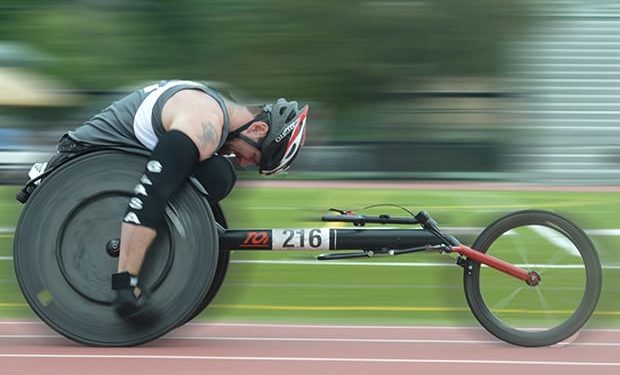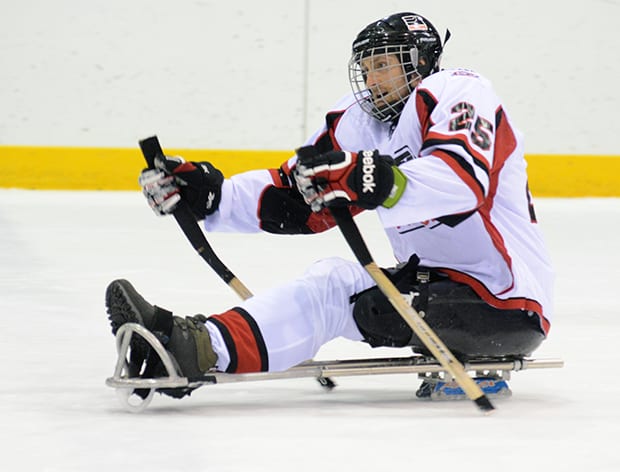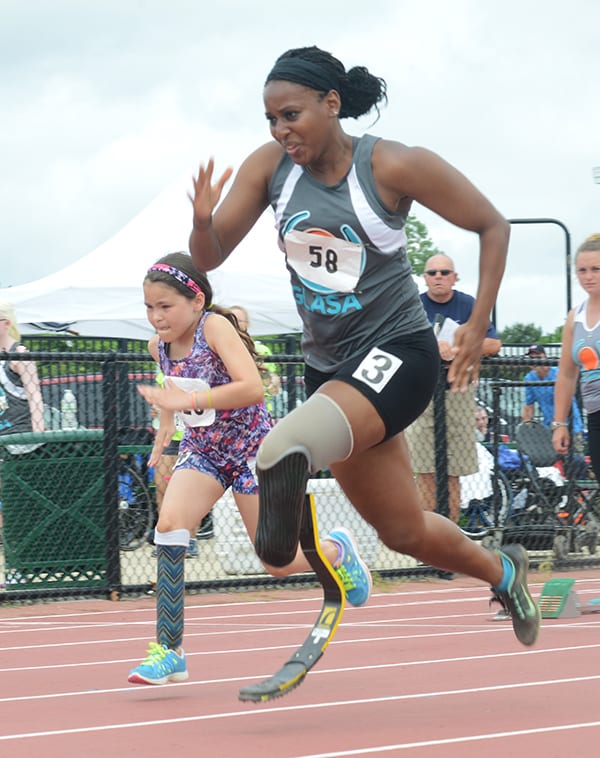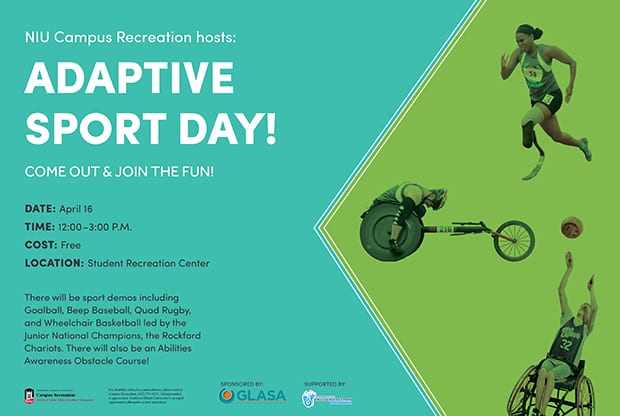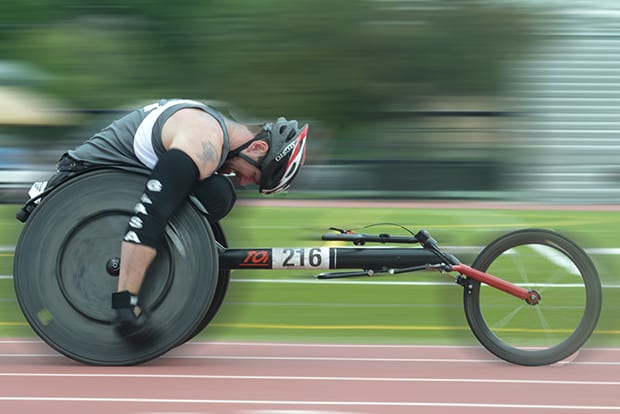While in her graduate studies, Sharon Moskowitz found there is a drastic disconnect between adaptive and mainstream sport worlds. And she decided to do something about it.
“We formed the idea of an Adaptive Sport Day to not only showcase the wide variety of available sports for adaptive athletes and community members, but to create a day of ability awareness,” said Moskowitz, the graduate assistant for fitness and wellness at Northern Illinois University’s (NIU) Campus Recreation department. “In other words, I want to show off athletes and abilities of all kinds, and help challenge the notion that being an ‘athlete’ must involve all limbs and senses without restriction.”
On April 16, NIU’s Campus Recreation is partnering with the Great Lakes Adaptive Sport Association and the Kishwaukee Special Recreation Association to host the event. Moskowitz said there will be demonstrations of sports like goalball, beep baseball and wheelchair basketball. Plus, participants will be able to get active and test their abilities at the adaptive sports and equipment used.
“Aside from wanting to show more sides to recreation beyond mainstream sports, our role in facilitating this event is to offer an opportunity for organizations that are not commonly housed under one roof to come together,” said Moskowitz.
She explained they want to have something for everyone. With coaches, athletes and staff on hand to share their expertise, the Adaptive Sports Day is geared toward educating, building new relationships and having a good time.
Moskowitz said the idea for the day spawned from old marketing material she found for a past event held by Campus Recreation, called “Adapted Fitness Funday.” For this reason, one of the biggest challenges for Moskowitz has been planning the day without a prior event to look at for ideas and scheduling purposes.
Logistically, Moskowitz said the bulk of planning has been connecting with organizations to get them involved in the event. Beyond that, she also has to think about the sports being played. “Consideration for court and playing surfaces, as well as sports for people with vision impairment, requires careful consideration for the timing of each demonstration,” she said. “For example, goalball athletes need to play on wood to slide. Beep baseball and goalball both require silence so the athletes can hear the equipment.”
In terms of what other Campus Recreation centers should know before they hold their own Adaptive Sports Day, Moskowitz gave several pieces of advice:
- What does your institution require in terms of waivers, insurance or both for your event(s)?
- Reserve space.
- The bigger the better.
- If an organization says it wants to be involved, hold it to coming.
- Keep the concept broad in the conceptualization stage.
- Invite everyone!
- Find an adaptive sport association or team and reach out.
- Take the lead, as the association may not have the resources to put on the event.
- Be relentless.
Lastly, Moskowitz said to think of yourself “as the middle bubble of a brainstorming web, facilitating connections between a lot of floating ideas.”
“If people are free, they will absolutely want to be part of your event and will do whatever they can to help spread adaptive sport awareness among an otherwise non-involved community,” she said.


